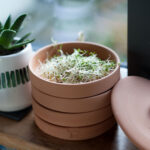We use cookies to make your experience better. To comply with the new e-Privacy directive, we need to ask for your consent to set the cookies. Learn more.
How to Sprout at Home
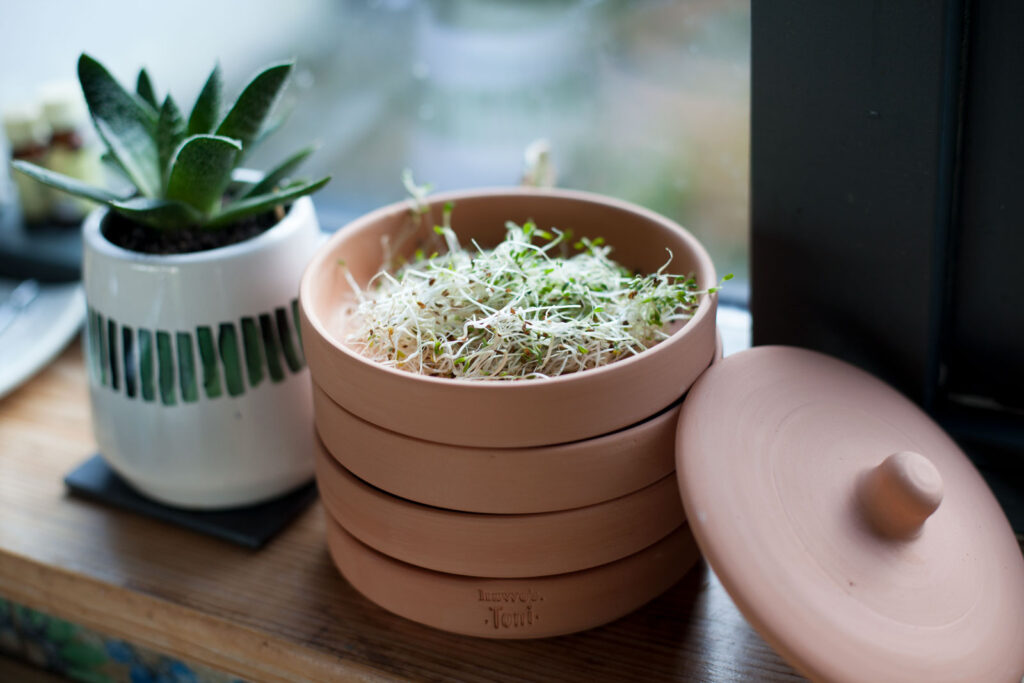
What are Sprouts? Sprouts are quite simply the tender shoots/sprouts of germinating seeds. They are one of the easiest foods you can grow indoors and take up next to no space in your kitchen. Sprouts are packed with protein, vitamins, enzymes and minerals and can provide a cheap, fresh, valuable addition to any diet. Lovely in salads, sandwiches or stir-fries.
| Sprouts are very user friendly and have been summarized (in 1940 by Dr McKay of Cornell University) as - A vegetable that will grow in any climate, will rival meat in nutritive value, will mature in 3 to 5 days, may be planted any day of the year, will require neither soil nor sunshine, will rival tomatoes in Vitamin C, will be free of waste in preparation and can be cooked quickly with little fuel. |
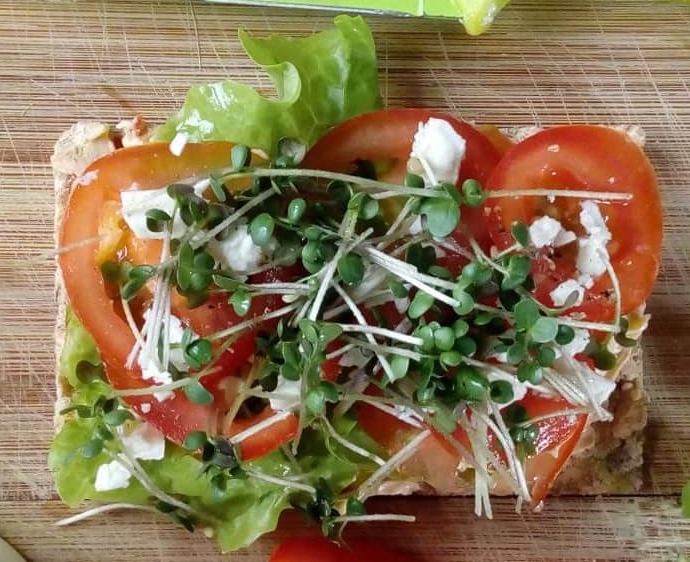
Nutrition in Sprouts Sprouting legumes, grains, and seeds makes them much easier to digest by breaking down the anti-nutrients (plant compounds that reduce the body’s ability to absorb essential nutrients) that are common in those foods. Sprouts are rich in digestible energy, vitamins, minerals, amino acids, proteins, and phytochemicals, as these are necessary for a germinating plant to grow. These nutrients are also essential to human health. The desirable nutritional changes that occur during sprouting are mainly due to the breakdown of complex compounds into a simpler form. This is a reason why sprouts are sometimes called pre-digested foods
Sprouts provide a good supply of Vitamins A, E & C plus B complex. Like enzymes, vitamins serve as bioactive catalysts to assist in the digestion and metabolism of food and the release of energy. They are also essential for the healing and repair of cells. However, vitamins are very perishable, and in general, the fresher the vegetable, the higher the vitamin content. The vitamin content of sprouted seeds can increase many times after several days of sprouting. Even soaking seeds overnight in water yields greatly increased amounts of B vitamins, as well as Vitamin C.
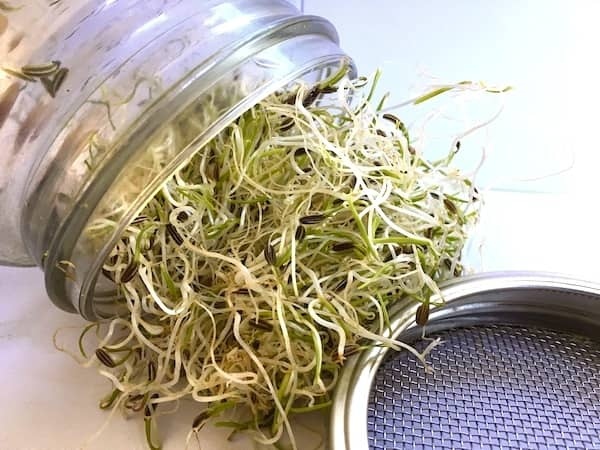
What seeds can I sprout? Most seeds, like peas, beans, grains and nuts can be sprouted. You should always use seeds from a reputable source, preferably organic. We sell all our sprouting seeds in 75g, 250g and kilo packs. As well as single seeds we also sell mixes.
What equipment do I need? You can sprout seeds in a jar with a ventilated mesh lid, in a muslin bag or in a sprouter. Consider where you are going to put the sprouter - sprouts like a light airy place away from a heat source. The kitchen windowsill or worktop is ideal. You also need to have access to clean fresh water for rinsing.
Getting started
• You will need about two teaspoons of small seeds or a tablespoon of the larger ones. The finished sprouts occupy a lot of volume so sprouting less is better to begin with.
• Check your seed for any debris that shouldn’t be there, especially small stones. Rinse thoroughly then soak overnight in clean fresh water.
• Drain and rinse again the following morning then put the soaked seed in your sprouting tray or jar. The seeds should be rinsed and drained a least once a day and placed somewhere with a light source.
• After one or two days (depending on temperature and seed size) you will start to see small sprouts emerging. They should be ready to eat in about 4/7 days.
• Sprouts are best eaten when small and delicate. You can have several different sprouts on the go at once. To ensure a regular supply soak and sprout successively. Rinsed and drained sprouts can be stored in the fridge for up to a week, so if time is short you could just do one batch a week and store them in the fridge to eat as you need.
How do I eat sprouts? Crunchy and fresh sprouts are ideal mixed in with salads or added to a sandwich or omelette. They also make a very good garnish and can be used to tempt children into eating healthy food. Chick pea sprouts can be used to make raw humus and all sprouts can be added at the last moment to soups and stir-fries. Brassica sprouts are hot and will give a kick to any meal. There are lots of recipes on the International Sprout Growers association website for you to get some ideas.
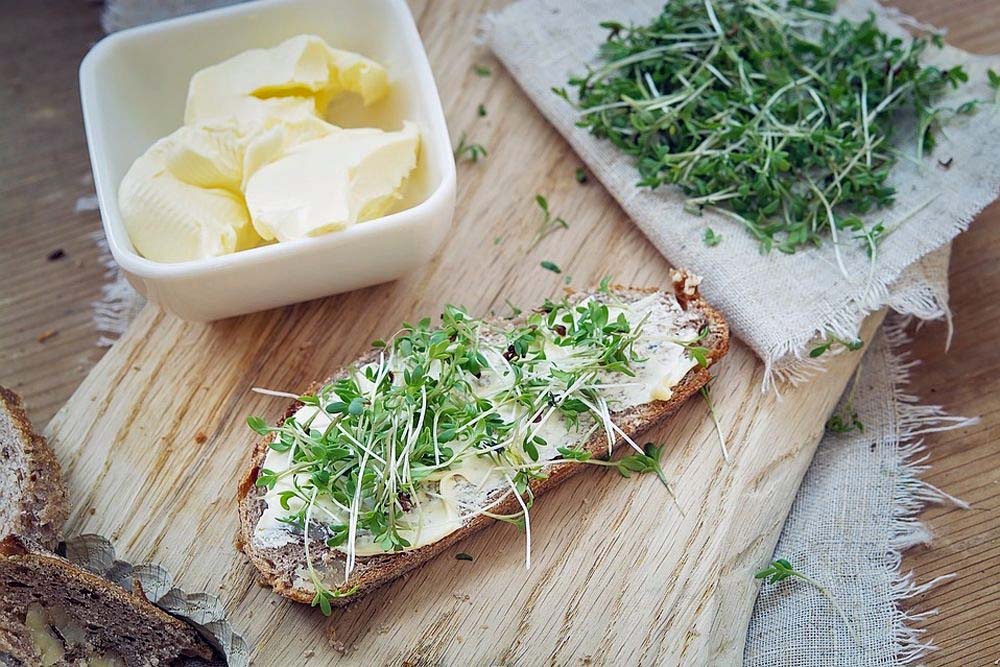
| * Hygiene is very important when sprouting seeds. At FHF all our sprouting seeds are certified organic and come from a HACCP approved supplier. They have a minimum germination rate of 85%. * It is important to keep all equipment spotlessly clean. * All soaking and rinsing must be done with clean water. * Soggy sprouts left in a warm environment are an ideal place for bacteria to grow so always make sure your sprouts are well drained and stored in the fridge. * Good air circulation is important to avoid the growth of mould. |

